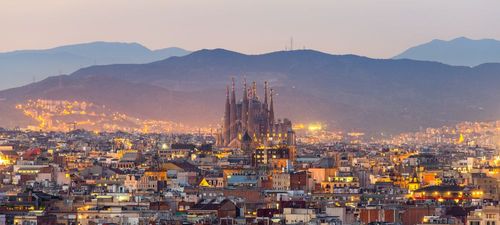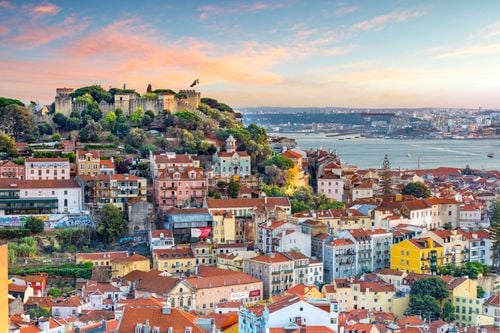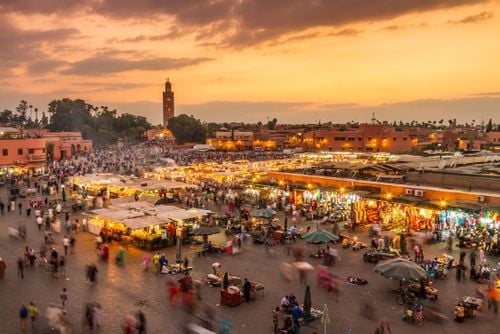A journey rich in emotion and discovery

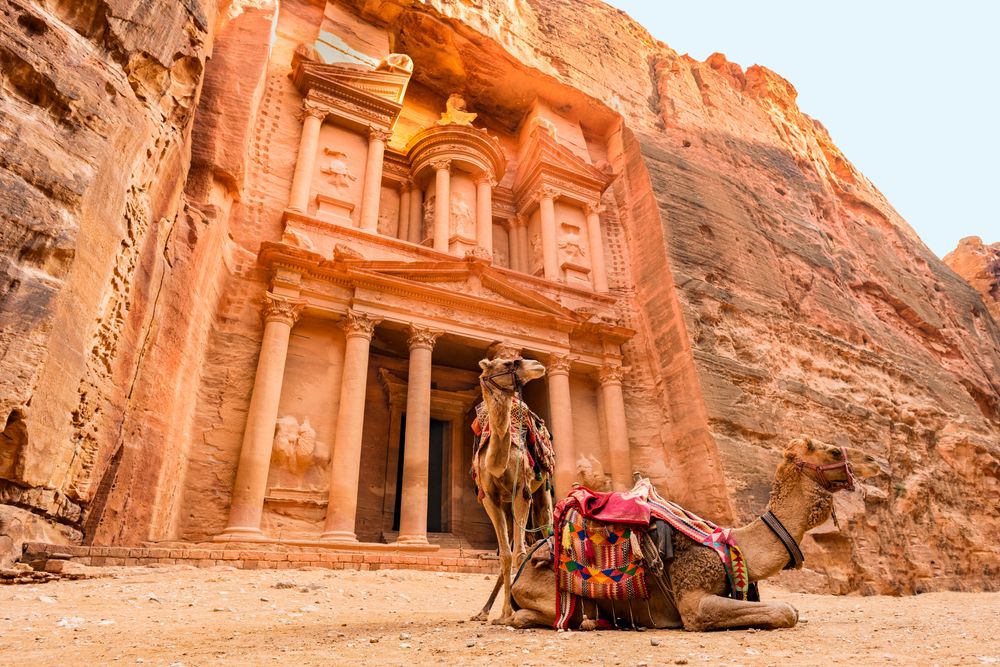
A journey rich in emotion and discovery
Bordering the Dead Sea and the Red Sea, Jordan has established itself as a leading cultural destination. From Petra, the Nabataean city, to the beaches of the Gulf of Aqaba, via the desert of Wadi Rum, Jordan offers a range of sporting, leisure and cultural activities. Follow in the footsteps of Lawrence of Arabia and the Bedouins at the crossroads of Phoenician, Greek, Roman and Byzantine civilisations. You'll meet a particularly generous people.
Jordan is a destination in its own right. It has everything you could wish for: cultural and historical sites, Greco-Roman ruins, castles in the desert, sporting activities, nature at its best, relaxation at the seaside and medical tourism at the Dead Sea. Jordan is a small country, so you can easily visit most of the tourist sites in one or two weeks.
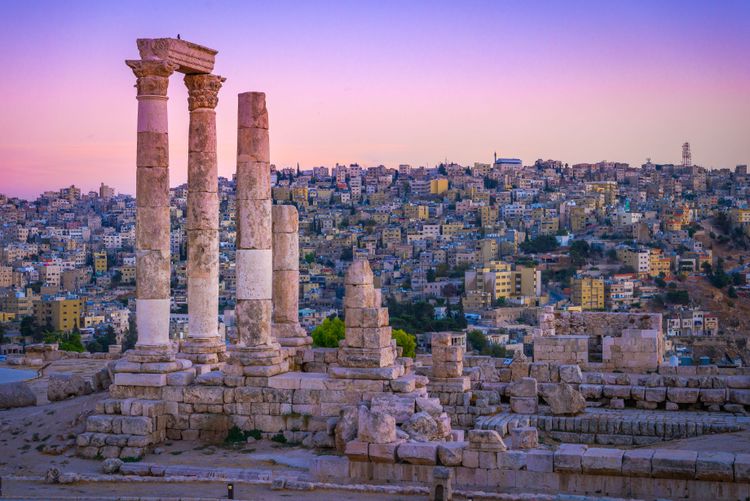
The Citadel of Amman, the capital of Jordan.
- © mbrand85 / ShutterstockFor a first visit, we recommend Amman, the sites of Jerash, the desert castles, Madaba, Mount Nebo, Bethany, Kerak and Dana. Then there's Petra, a must-see, and the Wadi Rum desert. You can then discover the shores of the Dead Sea, and if you want to take advantage of the sea to dive, head for Aqaba and the Red Sea. Don't expect to discover authentic Jordan in Aqaba. It's a seaside resort with many international hotel chains.
On the shores of the Dead Sea, international hotels offer a variety of treatments and have beautiful thalassotherapy centres. To make the most of the Dana nature reserve, Wadi Mujib or Wadi Rum, treat yourself to a night on a campsite or in a Bedouin camp. Waking up in the morning in this magnificent natural setting and sleeping with a starry sky above your head is worth all the luxury hotels in the world.

The Wadi Rum desert in Jordan.
- © JAY.D.Beagle / ShutterstockThe most beautiful landscapes in Jordan can be discovered along the famous"Kings' Highway", which links Amman and Aqaba via Petra. This biblical route, which crosses the ancient Transjordanian kingdoms of Ammon, Moab and Edom, was taken by the Hebrews in the Exodus and the caravans from Yemen on their way to the Mediterranean and the Levant. A mineral, vertiginous and chaotic landscape.
Jordan is home to some truly ancient treasures. Everywhere you will find the ruins of civilisations that have now disappeared and whose history lives on in the remains and in the millennia-old culture handed down from generation to generation. Crossing the desert, you can also admire the castles, aptly named"castles of the desert", most of which were built in the 8th century AD. Amman, Madaba, Mount Nebo, Kerak and of course Petra are other outstanding ancient sites among Jordan's countless wonders.
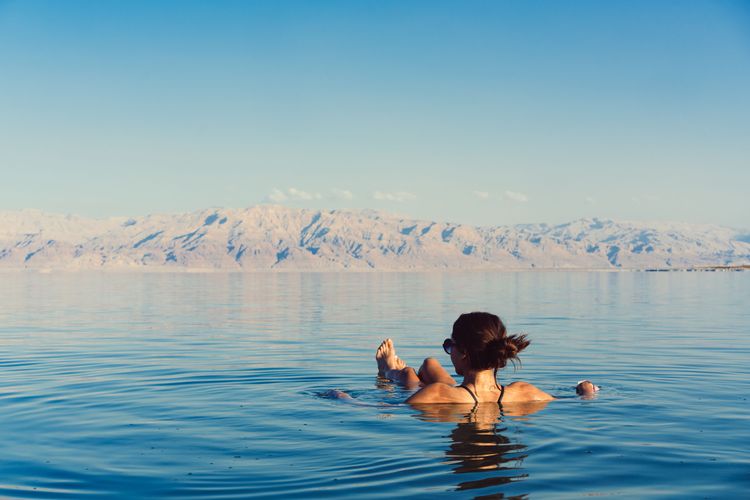
Bathing in the Dead Sea in Jordan.
- © Hrecheniuk Oleksii / ShutterstockThe more sporty can enjoy hiking in the reserves and desert of Wadi Rum, as well as diving in the Red Sea, windsurfing and sea kayaking. Climbing enthusiasts will also find some excellent sites in Wadi Rum. And for canyoning in an incredible setting, head for Wadi Hasa or Wadi Mujib.
Jordan also lends itself easily to a family holiday. Children will love splashing around in the Dead Sea. But make sure they don't put their heads under water! They can enjoy camel rides in the desert and sleep in a tepee in Dana. Discover the coral reefs in the Red Sea from a glass boat. Whatever you fancy, Jordan, with its Middle Eastern flavour, is a natural and cultural destination that invites you to discover.

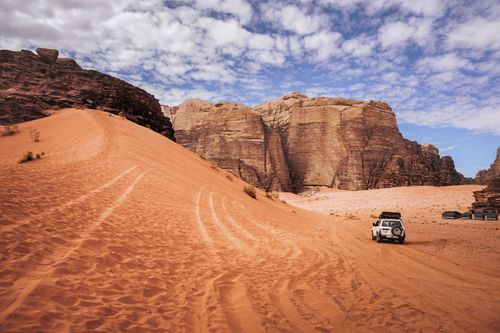
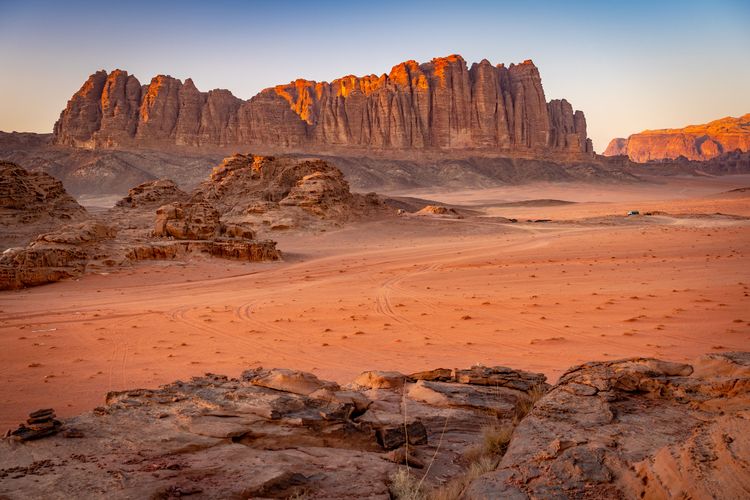 1
1
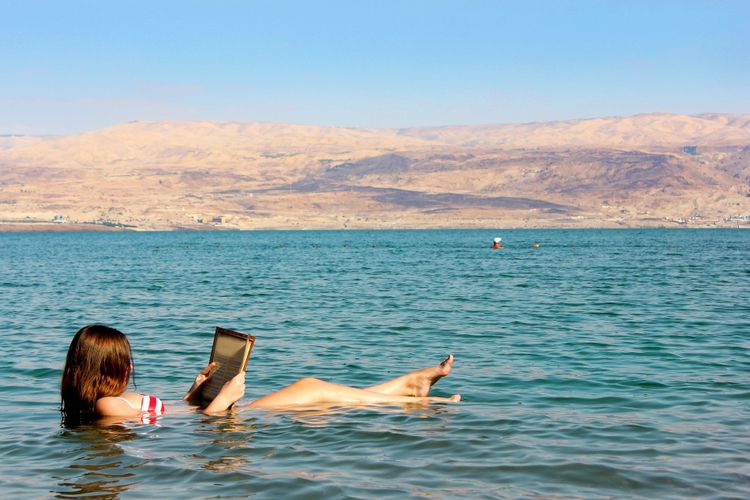 2
2
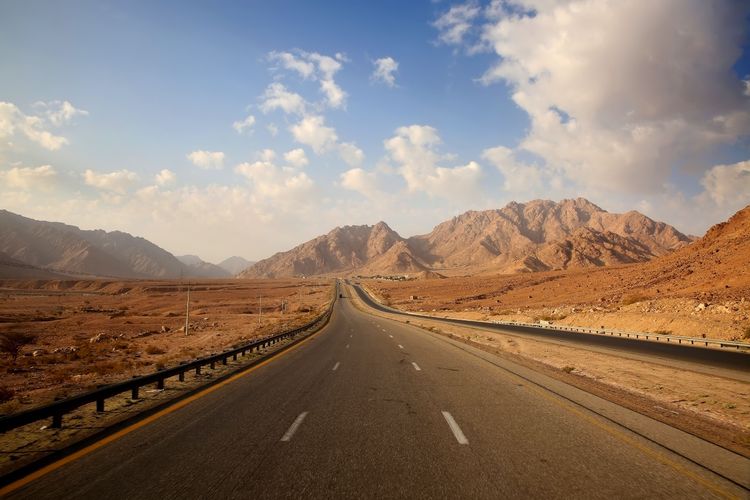 3
3
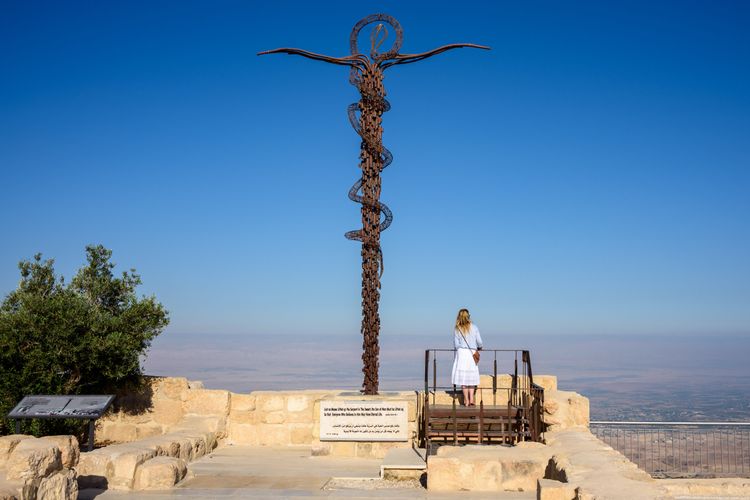 4
4
You'll need to fly to Jordan from France: allow between 4? and 5 hours for the flight from Paris. Queen Alia International Airport is located 40 kilometres south of Amman and is served by a large number of airlines.
In recent years, tourism has developed enormously in Jordan, and with it a large number of hotels have started to spring up in the country. From international chains to boutique hotels, guest houses and unusual accommodation, you'll have no trouble finding the accommodation you like!
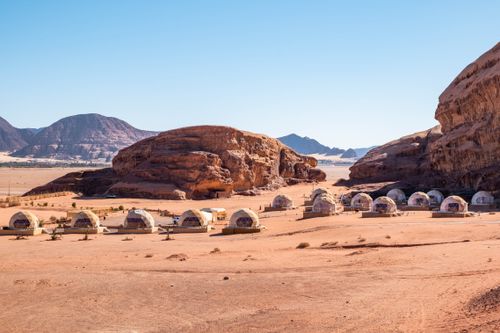
To stay in Jordan, you need a passport valid for at least six months after leaving the country and a tourist visa, which can be obtained directly on arrival in Jordan, at the airport or at a road border post. The visa is valid for one month and costs JOD 40(around €50).
Rather than entering Jordan on a tourist visa, we advise you to buy the Jordan Pass, which includes an entry visa and free access to over 40 sites in Jordan, including Petra, the Citadel of Amman, Wadi Rum and numerous desert castles. From 70 JOD, it's a very attractive alternative!
The Jordanian unit of currency is the Jordanian dinar (JOD), divided into piasters or fils. 1 euro = approximately 0.75 JOD. Bank cards are accepted in major hotels and some shops. You can withdraw cash with your bank card from most banks in Amman and Aqaba, and there are cash dispensers in Amman, Wadi Musa (Petra) and Aqaba. Do not use traveller's cheques as they are not always accepted and the commission is quite high. Banks are open from Sunday to Thursday from 9am to 3pm, although some also open on Saturdays.
Although the Middle East is known to be a fairly turbulent area, Jordan is far removed from the region's conflicts, so it is perfectly safe to visit the country. However, the border areas with Syria and Iraq are not recommended. In this country, flights are very rare and Oriental hospitality and courtesy are undeniable qualities in human relations. On the other hand, single women should keep their distance.
Sockets supply 220 V and are of the French type; an adaptor is generally not necessary.
No vaccinations are required to travel to Jordan, but it is advisable to have up-to-date DPT (diphtheria, tetanus, polio) and TBA (typhoid and paratyphoid A and B) vaccinations. Simply avoid drinking tap water outside the major towns and cities and, if you're going into the desert, take tablets to purify the water in your canteen. If you have a weak liver or stomach, avoid raw vegetables (especially in summer) and ice cream.
The official language is Near Eastern Arabic, but English is widely spoken in the cities.
Tipping, known as "baksheesh", is an institution in the East, and is an essential part of your salary. Allow 10% of the price for restaurant and hotel staff and 12 JOD per day for your private driver or guide. For taxis, round up to the nearest hundred.
The car is the ideal means of transport for travelling around the country, so you can stop at any time to enjoy the scenery. You'll find international and Jordanian car hire agencies at airports. Local car hire companies charge around 30 Jordanian dinars per day. You can also hire a car with a driver.
The country's main cities are served by fast and very cheap coaches. From Amman, for example, you should allow 8 JOD return to Aqaba or 11 JOD return to Petra. In town, individual taxis (yellow) are metered and cheap. For longer distances, there are "service taxis" (white) with fixed routes, which leave when they are full. They can drop you off at any point on the journey and pick you up en route.
The best times to visit Jordan are spring and autumn when the temperatures are pleasant. Winter can be a little chilly (but rarely freezing) in the highlands (especially Petra and Amman) and the mercury can quickly soar near the Dead Sea or in the Wadi Rum desert in summer. Whatever the season, rain is rare.
Jordan will end its time change in 2023. This means that there is a two-hour time difference when France is on winter time and only one hour when France is on summer time.
If a Jordanian invites you to their home for tea, don't hesitate, it's a sign of hospitality. Be aware, however, that your visit is likely to be a long one. You must remove your shoes when you enter, and if you are served a meal without cutlery, you are asked to use only your right hand to pick at the mezze.
explore Try out our comparators
It is Easy to travel
